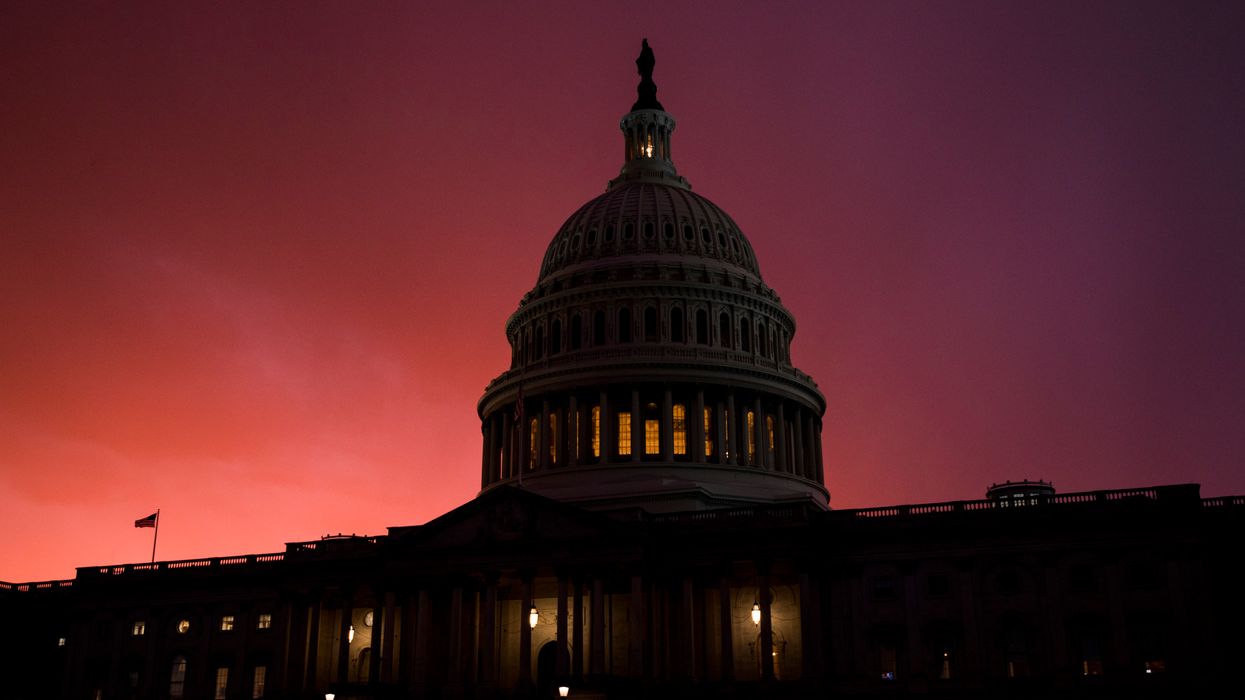The month of August is widely recognized as the ideal time for relaxation and rejuvenation. America’s 535 delegates to the U.S. Capitol started their annual summer recess on Aug. 4 and will not return to D.C. until Sept. 1.
This four-week respite should give our elected delegates time to reflect on their achievements since President Donald Trump started his 2.0 administration on Jan. 20. And, hopefully, the four-week break will give our legislators time to consider how they’ve come up short in representing their 340 million constituents and honoring the principles of the U.S. Constitution, which they took an oath to uphold and defend.
Congress’s job description
The 535 members of Congress’s job is to make laws, represent the people (versus their party), oversee the executive branch, and conduct investigations. Every legislator takes a pledge to bear allegiance to the Constitution as the supreme law and act without personal or political evasion.
Salary, fringe benefits, and employment sidebar
Let’s reflect on a couple work-related matters that have occurred in the past 29 weeks since Trump 2.0’s administration started. During this time period, the average adult has labored for 145 days with an average annual salary of $66,622 and a 31 percent fringe benefit package. Meanwhile, our 100 Senators and 435 Representatives have shown up to the Capitol 109 and 97 days, respectively, with an annual salary of $174,000, plus 61.9 percent fringe benefits.
Quite the disparity exists between our legislators and the working class.
119th Congress accomplishments
Multiple research-oriented searches revealed the most prominent accomplishments by our lawmakers since Jan. 20 are GOP dominated and defined in two areas: 1) the Republican Party has secured power of the Senate and House deliberations—which permits them to make laws, oversee the executive branch, and control the nation’s purse strings—and 2) passage of the “Big Beautiful Bill” will have a significant effect on federal taxes, credit, and deductions but is projected to increase federal deficits by $3.4 trillion over the next 10 years.
119th Congress shortcomings
Several legal experts and non-partisan public interest groups have raised serious concerns regarding potential overreach, violation of the law, and abuses of power by President Trump that suggest congressional investigations. They include:
- Trump signed multiple Executive Orders (EO) directing agencies to pause or redirect funds that were explicitly appropriated by Congress. Such actions potentially violate the Congressional Budget and Impoundment Control Act, which prohibits the president from unilaterally withholding congressionally allocated funds. Courts will make the final determination, but Congressional response to date can be summarized as: nothing.
- Trump fired 17 Inspector Generals in the first week of 2.0 without providing the required 30-day notice and case-specific reasons to Congress, as mandated by law. Congressional response: silence.
- Trump issued a series of EOs asserting powers that contradict or bypass federal statutes, such as border enforcement, birthright citizenship, and instructing the Department of Justice not to enforce TikTok’s ownership. Congressional response: sound of crickets.
- Trump signed EOs to place independent agencies—such as the Securities and Exchange Commission, Federal Communications Commission, and Federal Trade Commission—under his control and shut down USAID, bypassing congressional intent and defunding programs authorized by law. Congressional response: nada, nil, and naught.
- In March, President Trump issued an EO that many think undermines the independence of the electoral process, intervening where only Congress and the 50 states have constitutional authority. Courts will make the final determination, but to date, Congressional response has been: diddly-squat.
- Trump’s personal business entanglements and refusal to place assets in a blind trust violate the Emoluments Clauses of the Constitution, which our Congressional delegates have taken an oath to uphold. The final determination will be made by the courts, but to date, Congressional response has been: zip.
Congress’s failure to act is alarming
To date, a multitude of recommendations have been made by constitutional experts, independent think tanks, and freelance guest columnists urging Congress to take legislative oversight and accountability reforms during the Trump 2.0 administration.
Back in February, Gallup noted that only 29 percent of Americans approved of Congress. Not surprisingly, today, only 23 percent of Americans approve of the way Congress is handling its job (news.gallup.com).
If any employee ignored work-site legal issues, abused the authority of their job, and received a 23 percent approval rating, they wouldn’t remain on the payroll very long.
But, Congress’s do-nothing behavior—since Jan. 20—is more alarming as their inaction risks normalizing executive overreach, enables unchecked presidential power, ignores laws, weakens democracy, and, most assuredly, reveals that an autocratic dictatorship is not coming to America, it is here!
Research is replete: Members of Congress have failed their oath of office to uphold the nation’s legal foundation, oversee the executive branch, and conduct investigations.
Congress: when you go back to work on Sept. 1, re-read your oath of office and do your job!
Steve Corbin is a professor emeritus of marketing at the University of Northern Iowa, and a non-paid freelance opinion editor and guest columnist contributor to 246 news agencies and 48 social media platforms in 45 states.




















Trump & Hegseth gave Mark Kelly a huge 2028 gift